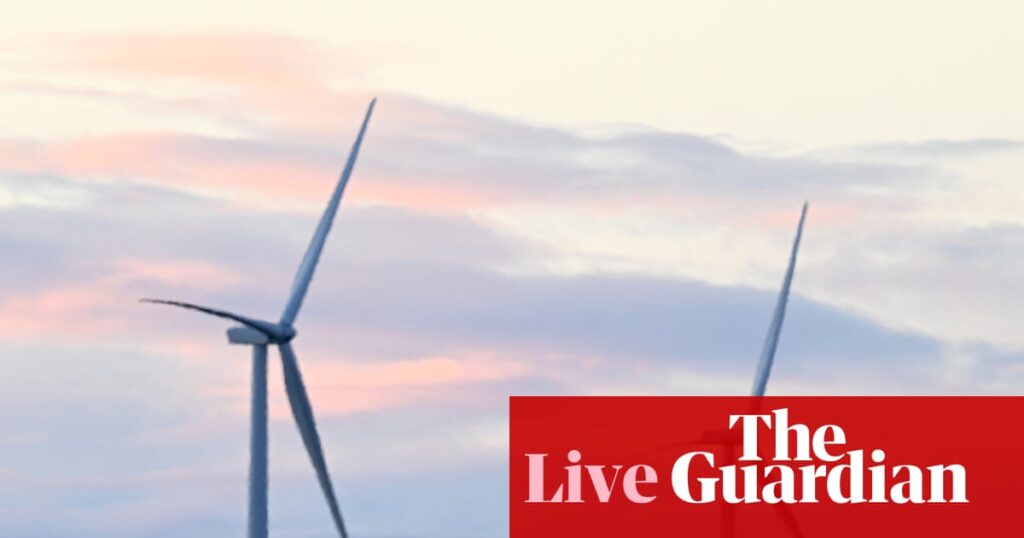
For the second consecutive quarter in 2025, Australia’s investment in new wind and solar projects has significantly lagged behind the pace required to meet the country’s 2030 renewable energy goals. According to data released by the Clean Energy Council, only four projects, totaling 615MW capacity, reached financial close between April and June. This brings the total new investment for the year to 1.17GW, which is merely a third of the 6-7 GW per year needed to replace ageing coal power and achieve an 82% renewable energy mix by 2030.
Political and policy uncertainty during the federal election period has been cited as a contributing factor to this shortfall. Anna Freeman, the Clean Energy Council’s chief policy and impact officer, commented on the situation, noting,
“While we now have renewed confidence in the direction of travel, many chronic and structural issues remain unresolved – significant delays in the transmission rollout, lengthy and unpredictable environmental and planning processes, workforce bottlenecks, and a lack of certainty about long-term revenue for new projects.”
Government Actions and Industry Challenges
In response to these challenges, Environment Minister Murray Watt announced the approval of a 135MW solar farm with battery storage in New South Wales, marking the 97th renewable project approved under the Albanese government. In a bid to accelerate the transition to renewable energy, the federal government also unveiled plans in July to expand its underwriting scheme.
Despite these efforts, the renewable energy sector faces significant hurdles. Delays in transmission infrastructure, complex environmental and planning approvals, and a lack of workforce capacity are among the key issues hampering progress. Industry experts argue that without addressing these bottlenecks, Australia risks falling short of its ambitious renewable energy targets.
Childcare Compliance Crackdown
Meanwhile, in a separate development, the federal government has initiated compliance actions against 30 childcare centers for failing to meet national quality standards. Education Minister Jason Clare announced that these centers have been identified as non-compliant for over seven years. The enforcement actions, which focus on issues such as play area safety, hygiene, and staff training, come as the government exercises new enforcement powers for the first time.
The centers have been given 48 hours to inform parents of the actions, with their names to be published by the department. They have six months to improve their standards or risk losing access to childcare subsidies. Clare emphasized the government’s commitment to raising standards, stating,
“We have taken action swiftly under the new legislation to begin rebuilding confidence in a system that parents need to have confidence in. This is not about closing centers down, it’s about lifting standards up.”
Human Rights Complaint in Sydney
In Sydney, a human rights complaint is being prepared after a restaurant allegedly denied service to patrons wearing Palestinian keffiyehs. The Racial Justice Centre plans to file the complaint with the Australian Human Rights Commission following the incident at Jimmy’s Falafel. The complaint will address the restaurant’s temporary refusal to serve individuals wearing the traditional Palestinian scarf, which occurred after a march across the Sydney Harbour Bridge advocating for an end to the Israel-Gaza conflict.
Four individuals, not part of the complaint, reported being told they could not dine inside unless they removed their keffiyehs. The incident has sparked discussions about discrimination and cultural sensitivity in public spaces.
Albanese’s Stance on Palestine Recognition
Prime Minister Anthony Albanese has defended Australia’s decision to recognize Palestinian statehood at an upcoming UN meeting, despite criticism from the US ambassador to Israel. The ambassador expressed “enormous disappointment and some disgust” over the announcement, which he claimed took the US by surprise.
Albanese, however, maintained that Australia’s position reflects the nation’s values and concerns over the humanitarian situation in Gaza. He stated,
“[Australians] were disgusted by the terrorist actions of Hamas on October 7, the slaughter of innocent Israelis, taking of hostages and the ongoing holding of those hostages have outraged Australians, but Australians have also seen the death of tens of thousands of people.”
The Prime Minister emphasized Australia’s sovereign right to make decisions aligned with its interests and values, underscoring the need for a two-state solution to ensure peace and security for both Palestinians and Israelis.
As Australia navigates these complex issues, the government faces the dual challenge of advancing its renewable energy agenda while addressing pressing social and political concerns both domestically and internationally.






